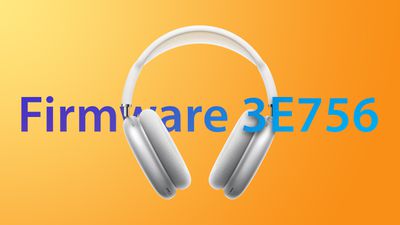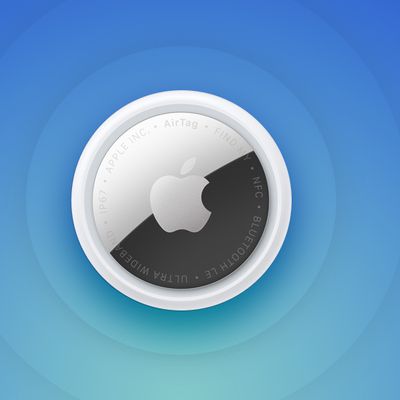Apple Releases New '3E756' AirPods Max Firmware
Apple today released new 3E756 firmware designed for the AirPods Max, marking the third firmware update Apple has introduced for its high-end headphones since their December launch.

The new 3E756 firmware replaces the 3C39 firmware that was released to AirPods Max owners in March.
Apple does not provide details on what's included in new firmware updates, so we don't know what bug fixes or improvements the new firmware might offer. There may be improvements to battery life, or updated support for Spatial Audio, a feature that debuted for Apple Music yesterday.
There's no standard way to upgrade firmware on AirPods, AirPods Pro, or AirPods Max, but connecting the AirPods Max to an iPhone or an iPad while connected to a power source may force the update.
You can check the firmware on your AirPods Max by following these steps:
- Connect your AirPods Max to your iOS device.
- Open the Settings app.
- Tap General.
- Tap About.
- Tap AirPods.
- Look at the number next to "Firmware Version."
In the past, updates for the AirPods Pro and AirPods have included performance improvements, bug fixes, and feature tweaks. The prior update, for example, addressed a Smart Case battery drain issue.
If we find notable changes after installing the firmware updates, we'll update this article.
Popular Stories
Apple today introduced its first two physical products of 2026: a second-generation AirTag and the Black Unity Connection Braided Solo Loop for the Apple Watch.
Read our coverage of each announcement to learn more:Apple Unveils New AirTag With Longer Range, Louder Speaker, and More
Apple Introduces New Black Unity Apple Watch BandBoth the new AirTag and the Black Unity Connection Braided...
Alongside iOS 26.2.1, Apple today released an updated version of iOS 12 for devices that are still running that operating system update, eight years after the software was first released.
iOS 12.5.8 is available for the iPhone 5s and the iPhone 6, meaning Apple is continuing to support these devices for 13 and 12 years after launch, respectively. The iPhone 5s came out in September 2013,...
Apple today introduced the second-generation AirTag, with key features including longer range for tracking items and a louder speaker.
For those who are not familiar, the AirTag is a small accessory that you can attach to your backpack, keys, or other items. Then, you can track the location of those items in the Find My app on the iPhone, iPad, Mac, Apple Watch, and iCloud.com.
The new...
2026 promises to be yet another busy year for Apple, with the company rumored to be planning more than 20 product announcements over the coming months.
Beyond the usual updates to iPhones, iPads, Macs, and Apple Watches, Apple is expected to release its all-new smart home hub, which was reportedly delayed until the more personalized version of Siri is ready. Other unique products rumored for ...
Update: Apple Creator Studio is now available.
Apple Creator Studio launches this Wednesday, January 28. The all-in-one subscription provides access to the Final Cut Pro, Logic Pro, Pixelmator Pro, Motion, Compressor, and MainStage apps, with U.S. pricing set at $12.99 per month or $129 per year.
A subscription to Apple Creator Studio also unlocks "intelligent features" and "premium...





















